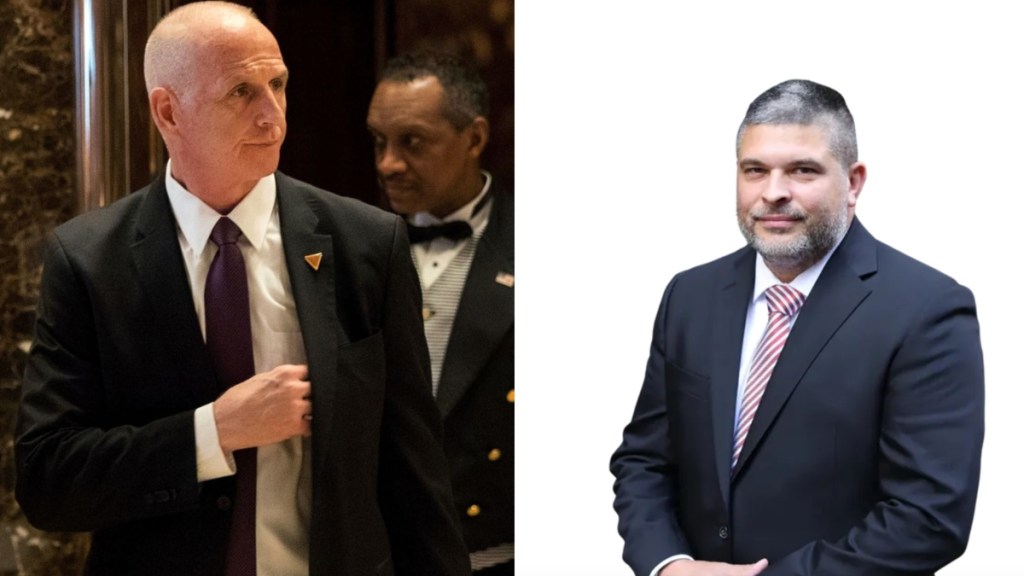Donald Trump‘s tariff diplomacy has forced countries to rethink their strategies for relations with the United States. As the new US president redefines ties and work policies, countries have turned to lobbyists to build the right narrative with the White House.
Trump’s erratic stance against India – from taking credit for the war to calling India a ‘dead economy’ and ‘tariff king’ clearly indicates all is not well between India and US.
A recent Bloomberg report indicated that New Delhi officials feel June 17 phone call between Trump and Modi may have turned the tide in the wrong direction.
Who is Jason Miller, India’s Trump whisperer?
Like many other countries, New Delhi has turned to Washington lobbyists with close ties to the White House in the hope of securing a better deal. In May, India signed a one-year, $1.8 million contract with Jason Miller, a seasoned Trump insider. Since then, he has been working for “strategic counsel, tactical planning and government relations assistance” alongside perception management and public relations, according to filings with the US Justice Department.
Jason Miller is best known for his role as chief spokesman for Trump’s 2016 presidential campaign and as a senior adviser during the 2020 and 2024 campaigns. He also served as CEO of the conservative social media platform Gettr before returning to Trump’s political circle.
Yet, despite this significant investment, India’s tariff woes have worsened. A stalemate in a trade deal led to tariffs on Indian exports being raised to 25 per cent, with Trump now preparing an additional 25 per cent penalty, bringing the potential total to 50 per cent, in retaliation for India’s continued imports of Russian oil.
According to a Times of India report, experts in New Delhi are questioning whether Miller’s efforts have yielded tangible benefits, particularly as Pakistan’s tariff rate stands at just 19 per cent.
Who is Keith Schiller – Pak’s lobbyist in White House?
Meanwhile, Pakistan hired Keith Schiller, Trump’s former personal bodyguard and long-time confidant to lobby for the nation. Schiller, through his firm Javelin Associates, played an active role in influencing US tariff decisions, particularly for countries such as Pakistan. Reports suggest his close access to Trump carried substantial weight in Washington lobbying circles.
Pakistan’s deal with Schiller at $50,000 per month cost a fraction of India’s outlay but appears to have delivered better results.
Weeks before India signed with Miller, Pakistan struck its deal with Schiller. Both men are seen as “Trump whisperers”, but Schiller’s enduring personal rapport with Trump may have given him the edge. Pakistan has not only secured a lower tariff rate but also enjoyed warmer diplomatic engagement, exemplified by Trump’s invitation to Pakistani army chief Asim Munir for a White House luncheon.
Is lobbying enough to win Trump?
According to TOI report, White House insiders have indicated that no single lobbyist can guarantee results with Trump. Both Schiller and Miller have been outside the official Trump administration for years, and the President’s decision-making remains instinct-driven. Personal rapport, symbolic gestures, and direct leader-to-leader interaction often weigh more heavily than back-channel lobbying.
Modi’s refusal to discuss tariffs directly, even during a personal phone call, and his firm stance on Russian oil imports further frustrated Trump. “The Prime Minister does not negotiate on tariffs over the phone. He leaves it to the negotiating team,” a senior Indian diplomat told Politico, highlighting New Delhi’s preference for formal channels over personalised diplomacy.
Mukesh Aghi, head of the US-India Strategic Partnership Forum, noted that trade influence now depends less on intermediaries and more on leader-to-leader engagement that aligns with Trump’s instincts.

